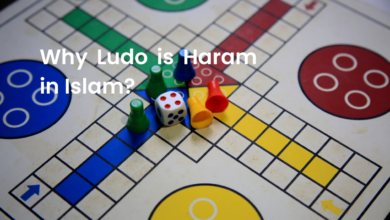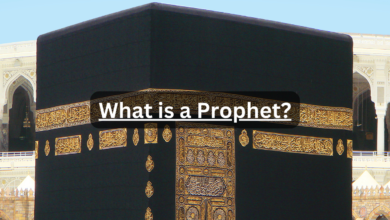Is Islam Spreading
Understanding the Growth of Islam: Demographics, Conversion, and Socio-Political Dynamics

Is Islam Spreading
Yes, Islam is often cited as one of the fastest-growing religions globally, primarily due to high birth rates in Muslim-majority countries and conversions to Islam. However, the rate of growth varies by region and should be understood in a nuanced context.

Introduction
The question of whether Islam is spreading is a topic of interest and debate in today’s world. With over 1.9 billion followers, Islam is the world’s second-largest religion, and its growth is a subject of both fascination and concern for many. To answer this question, we need to examine the factors contributing to the spread of Islam, its global demographics, and the broader socio-political context.
Factors Contributing to the Spread of Islam
- Birth Rates: One significant factor contributing to the growth of Islam is the relatively high birth rates among Muslim communities. In many countries with Muslim-majority populations, birth rates are often higher than the global average. This demographic trend contributes to the natural increase in the Muslim population.
- Conversion: While birth rates play a crucial role, conversion to Islam also contributes to its spread. People from various backgrounds embrace Islam for various reasons, including personal belief, marriage, or social factors. Interfaith dialogue and outreach efforts by Islamic organizations have played a role in promoting understanding and acceptance of the religion.
- Migration: Global migration patterns have also contributed to the spread of Islam. Muslims have moved to different parts of the world for various reasons, including economic opportunities, education, and fleeing conflicts. This has resulted in Muslim communities forming in places where they were previously scarce.
- Religious Outreach: Islamic missionary activities, commonly known as Dawah, have expanded worldwide, promoting the message of Islam and inviting non-Muslims to learn about the religion. The internet and social media have also become platforms for sharing Islamic teachings and engaging in dialogue.
Also check.
- Who is the Wessiah in Islam?
- What is Wudu in Islam?
- What is Jihad in Islam?
- Why did Islam Spread So Quickly?
- What is Nikkah in Islam?
Global Demographics of Islam
Islam is a diverse religion with followers from various ethnic, cultural, and linguistic backgrounds. While the majority of Muslims live in Asia and Africa, significant Muslim populations can be found in Europe, the Americas, and Oceania. This global presence reflects both historical patterns of migration and contemporary factors like international education and labor mobility.
Socio-Political Context
The spread of Islam is not solely a demographic or religious phenomenon; it is also influenced by socio-political factors. These factors include:
- Geopolitical Conflicts: Geopolitical conflicts, such as those in the Middle East, have drawn global attention to Islam. They have often resulted in discussions about the religion, its beliefs, and its followers.
- Islamophobia: Anti-Muslim sentiments and discrimination, commonly referred to as Islamophobia, have also gained prominence in recent years. These negative perceptions can affect the integration of Muslim communities in non-Muslim majority countries and sometimes lead to backlash against the religion.
- Cultural Exchange: As globalization continues, cultures are increasingly interconnected. This has led to the sharing of ideas, including religious ones, between different parts of the world. It has also facilitated interfaith dialogue and religious exploration.
Conclusion
In conclusion, Islam is indeed spreading, but the reasons for its growth are multifaceted. Factors such as birth rates, conversion, migration, and religious outreach have contributed to the expansion of the Muslim population worldwide. However, it is essential to understand that the spread of Islam is not a monolithic phenomenon; it varies from region to region and is influenced by a complex interplay of demographic, cultural, and political factors. In the face of this growth, it is important for societies to promote dialogue, tolerance, and understanding among different religious communities to foster peaceful coexistence in our increasingly interconnected world.

FAQs
Is Islam really the fastest-growing religion in the world?
Yes, Islam is often cited as one of the fastest-growing religions globally, primarily due to high birth rates in Muslim-majority countries and conversions to Islam. However, the rate of growth varies by region and should be understood in a nuanced context.
What contributes to the spread of Islam?
Several factors contribute to the spread of Islam, including birth rates, conversion, migration, religious outreach, and cultural exchange. These factors interact differently in various regions, affecting the rate of growth.
Are people converting to Islam in significant numbers?
Yes, conversion to Islam occurs in various parts of the world for a multitude of reasons, including personal belief, marriage, and social factors. Interfaith dialogue and educational efforts by Islamic organizations also play a role in conversions.
How does migration impact the spread of Islam?
Migration is a significant factor in the spread of Islam. As Muslims move to different parts of the world for various reasons, they establish communities in new regions, contributing to the growth and diversity of Muslim populations globally.
Are there specific regions where Islam is spreading more rapidly than others?
Islam is growing at different rates in different regions. The highest birth rates and conversion rates are often observed in Africa and parts of Asia, contributing to rapid growth in these areas. However, migration and conversion trends vary globally.
What role does religious outreach (Dawah) play in the spread of Islam?
Religious outreach activities, commonly known as Dawah, are crucial for disseminating the message of Islam and inviting non-Muslims to learn about the religion. The internet and social media have also become important platforms for Dawah efforts.
How do geopolitical conflicts affect perceptions of Islam and its spread?
Geopolitical conflicts, especially those in the Middle East, have drawn global attention to Islam. These conflicts often result in discussions about the religion, its beliefs, and its followers, which can impact public perceptions.




